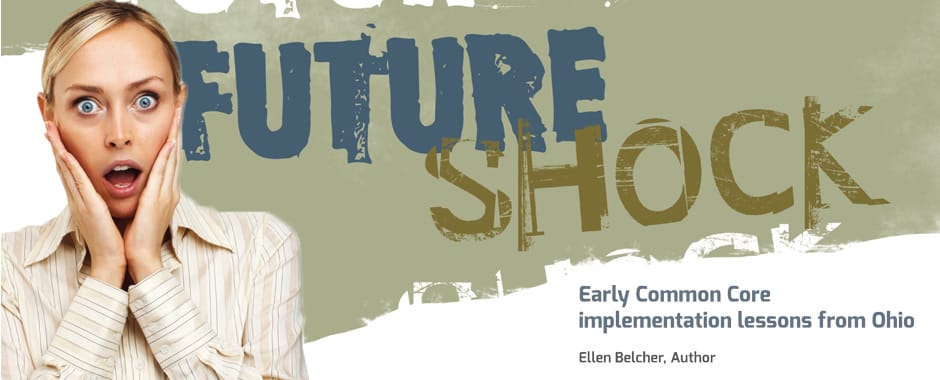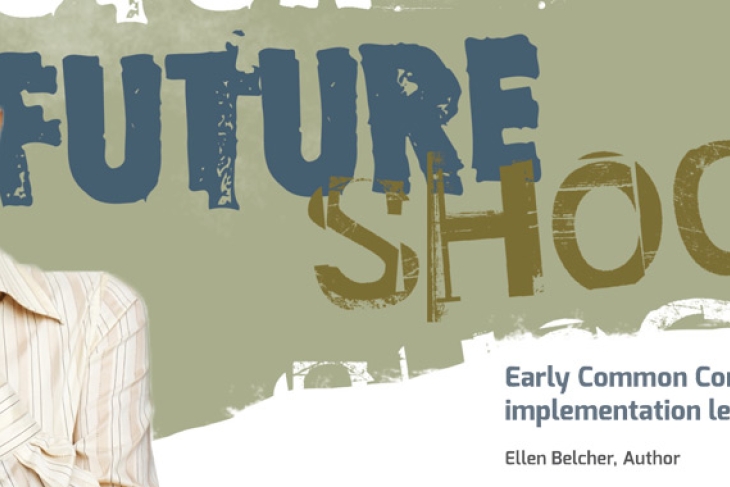
The Thomas B. Fordham Institute has long advocated for high quality academic content standards nationally – and in our home state of Ohio. In fact, the first report ever issued by Fordham, in 1997, was State English Standards and rated English language arts standards across 28 states, including Ohio. Just as we’ve long called for high quality academic standards, the Buckeye State was an early leader in embracing standards-based education.
So it is not surprising that Ohio committed itself in 2010 to adopting more rigorous academic content standards: Ohio is one of 45 states and the District of Columbia that has committed to implementing the Common Core standards in math and English language arts by the start of the 2014-15 school year. In 2011, Ohio joined 23 other states in adopting the Partnership for Assessment of Readiness for College and Careers (PARCC) assessment consortium. These are significant decisions for the Buckeye State, its schools, and its children because it has committed to elevating big time the expectations and performance of its children in coming years.
Ohio has made an audacious commitment to delivering significantly higher levels of academic performance for all its children. This is absolutely the right course for the Buckeye State to take, but there is a lot of necessary work to accomplish in the next two years if the promise of the Common Core is to be met. This work includes developing new curriculum; revamping the state’s accountability system to align with new assessments; and ensuring that professional development and teacher preparation programs are suitably aligned to the new system.
Taken as a whole, this amounts to an entire system reboot – a major undertaking but worth the effort if it leads to higher performing students in the Buckeye State in coming years. Most of this work will fall on the state’s superintendents, curriculum coordinators, principals, classroom teachers, and students.
With the 2014-15 Common-Core transition looming, we wondered: How are Ohio’s educators preparing themselves for this big change? What’s going well? What’s not going well? What are those on the ground learning? What are administrators and teachers losing sleep over? What’s getting in the way of success? What are educators saying is the smartest thing that they have done? What are the lessons, hopes, and fears facing those on the frontlines who have to lead Ohio’s embrace of significantly more rigorous academic standards.
To answer these questions and others, we commissioned Ellen Belcher -- former editorial page editor of the Dayton Daily News -- to interview fifteen educators and administrators from select school districts, county educational service centers, and charter schools that are considered leaders in Common Core implementation in the Buckeye State. Their stories and comments are the basis of our latest report, Future Shock: Early Common Core implementation lessons from Ohio.
The findings are largely encouraging. Educators are not shying away from embracing the rigor of the Common Core and many are well down the path of setting the conditions for success in their districts and schools. Yes, educators see the Common Core as a major challenge. They worry whether all the moving parts and pieces will come together by 2014. They also worry that the changing political winds in Columbus and/or Washington, D.C., could impact or even set back their work. But, they see the move towards more rigorous and focused academic standards as positive and much-needed change. Said one interviewee, “The Common Core is the right work we should be doing as a country.”
For those of us who have long advocated for more rigorous academic standards and expectations, the early lessons and experiences in this report demonstrate that transitioning to a new system of common standards is possible – and actually wanted by frontline educators. For the tens of thousands of teachers, school leaders, and state administrators in Ohio doing the hard work of transitioning toward the Common Core, this report offers sound guidance and appropriate cautions about implementation going forward.


